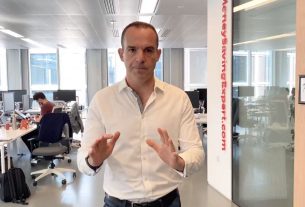Water firms in England are pushing plans to increase household bills by up to 40% to cover the costs of treating sewage and dealing with climate change.
The news come amid growing concern that the UK’s biggest water company, Thames Water is on the brink of collapse due to debts despite decades of paying dividends worth billions of pounds to shareholders.
Rishi Sunak’s government is concerned the price hikes might be announced around the time of the next general election, anticipated to be 18 months away.
The Times reports that average bills – which rose in April by 7.5% – could rise from £450 to £680 – plus inflation – per year for households already battling with the cost of living crisis.
South East Water – which has already implemented a hosepipe ban for customers in Kent and Sussex – reportedly want to increase bills by some 39% by 2030.
Thames Water – whose CEO Sarah Bentkey resigned on Tuesday – is desperately trying to secure extra funding to stave off collapse that would see it taken over by the government under a SAR (special administration regime). Thames Water – which has 15 million customers – has debts of around £14 billion, half of which is linked to inflation and rising interest rates.
Last year, industry watchdog Ofwat expressed its concern about the financial resilience of Thames Water as well as SES Water, Yorkshire Water and Portsmouth Water.
Labour’s shadow energy secretary Ed Miliband called the Thames Water situation “an absolute scandal”.
Margaret Thatcher’s Conservative government sold off England and Wales’ water and sewage firms for £7.6 billion in 1989. The privatisation, Thatcher promised, would lead to lower bills and higher water quality. She also wrote off all existing debt.
Since 1989 the water companies have amassed £54 billion of debt. At the same time they have paid out £66 billion in dividends.
In 2015 the National Audit Office found average household bills had increased 40% above inflation since 1989.
Last year the Guardian reported that 20% of water bills goes towards paying dividends or servicing debt.
Chancellor Jeremy Hunt spent much of Wednesday (June 28) asking utility watchdogs what they can do to help lower prices amid growing concerns of “greedflation” where companies are said to be exploiting rampant inflation to maximise their profits.
Hunt agreed a deal with regulators for water, energy and communications and the Competition and Markets Authority (CMA) to “act urgently” and “keep a watchful eye” following their meeting at No 11 Downing Street




